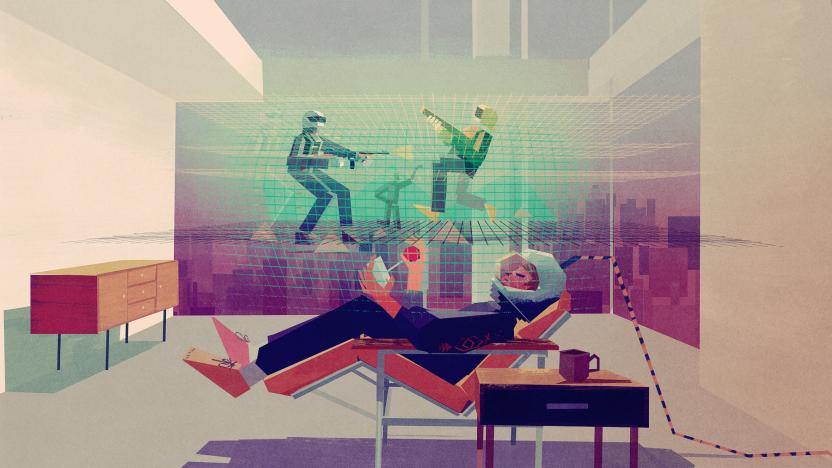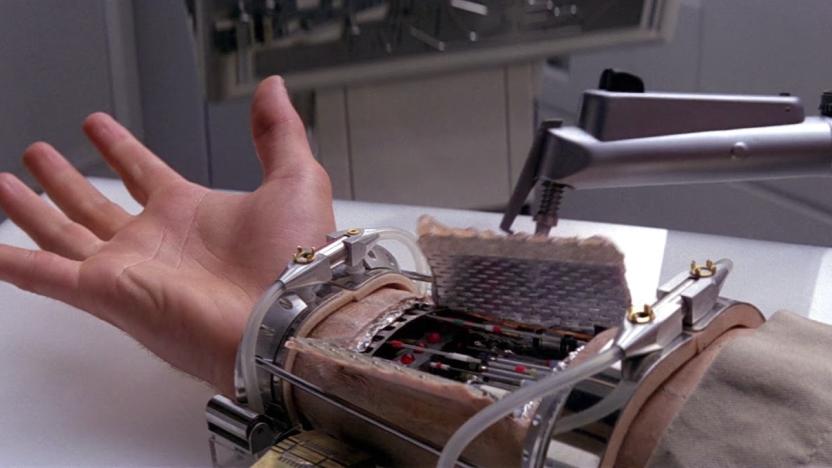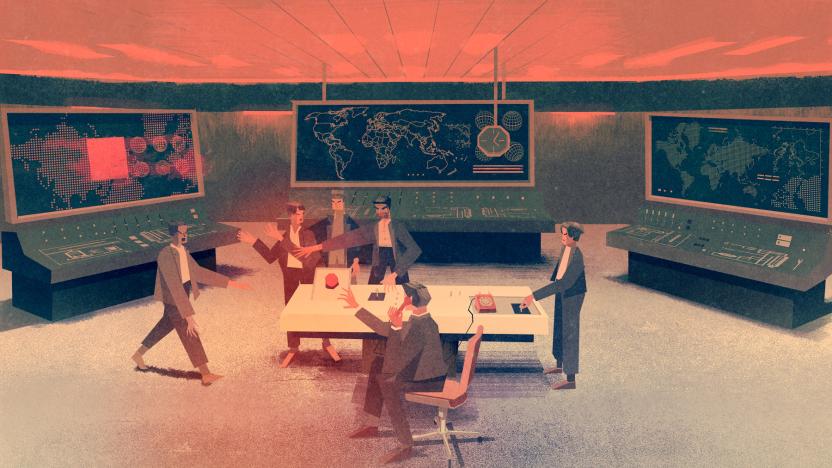tomorrowlaunchweek
Latest

The search for a habitable second Earth
Contact with extraterrestrial life would be an epochal event. Even the discovery of a simple alien organism would be transformative, giving us unprecedented insight into how life forms on Earth and other planets. Yet, there's exactly zero proof that life exists beyond this world -- not one alien germ, spore or cell, let alone an advanced race that could save or enslave us. And we don't even know how life sprung up here 4 billion years ago from rocks, mud and water.

Truly intelligent enemies could change the face of gaming
Live, die, repeat -- the tagline for the 2014 science-fiction film Edge of Tomorrow -- describes its protagonist, who "respawned" every time he died in the real world. Critics noted that the conceit resembled the cyclical experience of playing a video game, in which dying resets a staged arrangement of obstacles. Often these are enemies, and the most common way they're surpassed is by the player violently dispatching them. Some games have kept this as cartoonish as Mario jumping on a Goomba's head, but others strive for vivid action and more-lifelike foes to pit the player against. But we know what enemies look like today -- how will we treat them in the games to come? Put another way: How will violence in gaming change in the future?

Your mall will basically have to be psychic to survive
Repeat after me: Shopping is therapy. Whether you believe it or not, the rush some of us get from buying a new dress or gadget can be cathartic. And in the not-too-distant future, real-world shopping will get so seamless that it could feel like the store is actually psychic. But it's not just about flashy displays of bleeding-edge tech. Instead, expect a subtler approach that focuses on understanding your tastes to find you your next outfit while you're in the fitting room, all in the right size. Stores will learn to recognize you as you browse and change dynamically to show things that matter more to you so you won't have to be disappointed by missing sizes or sift through stuff you wouldn't have bought anyway.

Binge-watching will be as easy as breathing
It's never been a better time to be a media addict. We're in the midst of a television renaissance, where writers are pushing the medium to new heights. It's easier than ever to get access to foreign and independent films. And the rise of streaming services like Netflix and Hulu, as well as digital rentals, makes it a cinch to watch just about anything we'd like at a whim. If anything, one of the biggest issues with the media landscape today is that there's simply too much to take in.

Listening to starlight: Our ongoing search for alien intelligence
Six hours a day, seven days a week, for four straight months. That's how long radio astronomer Frank D. Drake pointed the 26-meter telescope at the National Radio Astronomy Observatory (NRAO) research facility in Green Bank, West Virginia, toward the heavens, looking for signs of intelligent life beyond Earth. He dubbed his efforts Project Ozma, in honor of the Queen of Oz from L. Frank Baum's famed children's book series.

The law isn’t ready for the internet of sexual assault
If the Mirai botnet taught us anything, it's that no device connected to the internet is safe from hacking. In that incident, malware hijacked thousands of devices, including DVRs, modems and security cameras. But as the worlds of sex and technology begin to intersect, the threat of hacking will enter a new, potentially more dangerous realm. Already, one connected vibrator has had its security called into question, and it won't be the last. When the inevitable happens, is there a legal framework to deal with such a crime?

The Long Now: Planning for a future 10,000 years away
In an age of self-driving cars, virtual reality worlds and artificial intelligence, some would say the future is already here. Technology moves at such breakneck speeds that companies in Silicon Valley often have product roadmaps that stretch five to ten years ahead. But what about decades? Centuries? Millenia? In the search for the next big thing, we often lose sight of the even bigger picture: of how the actions of today can affect our great-great grandchildren of tomorrow. The Long Now, however, is a foundation that aims to correct that.

Fashion and technology will inevitably become one
There's no denying that the technology world is obsessed with fashion. Amazon, Apple and Google, three of the biggest names in tech, are all trying to carve their own path into the fashion space. Apple's doing so with fancy smartwatches; Amazon with a shopping platform and voice-controlled cameras; and Google with conductive fabrics embedded in a smart jacket made by Levi's. And the interest is mutual. Fashion designer Karl Lagerfeld, Chanel's creative director, has expressed his love for tech by experimenting with partially 3D-printed pieces and runway shows that simulate a rocket launch. He's not the only one either. Zac Posen, with help from fashion house Marchesa, worked with IBM's Watson supercomputer to create a cognitive dress that lights up and changes colors based on activity on social media.

We're not getting Luke Skywalker's prosthetics any time soon
In 1937, robot hobbyist "Bill" Griffith P. Taylor of Toronto invented the world's first industrial robot. It was a crude machine, dubbed the Robot Gargantua (PDF, Pg 172) by its creator. The crane-like device was powered by a single electric motor and controlled via punched paper tape, which threw a series of switches controlling each of the machine's five axes of movement. Still, it could stack wooden blocks in preprogrammed patterns, an accomplishment that Meccano Magazine, an English monthly hobby magazine from the era, hailed as "a Wells-ian vision of 'Things to Come' in which human labor will not be necessary in building up the creations of architects and engineers."

Nuclear warfare and the technology of peace
The atom captivated the world in 1939. Since the discovery of the neutron in the early 1930s, the international scientific community had been racing to unlock new elements and further understand the immense power trapped inside the smallest, most basic building blocks of life. Enrico Fermi, the man who would eventually create the nuclear reactor, toiled away in Italy; Irène Joliot-Curie, the accomplished daughter of Marie and Pierre Curie, experimented on the neutron in France; and Ernest Rutherford, the father of nuclear physics, worked with students to split an atom's nucleus. Hungarian physicist Leó Szilárd worked out the concept of a nuclear chain reaction, a self-propagating process that promised to expel millions of times more energy than a traditional chemical reaction. At the same time, Szilárd, physicist Lise Meitner and others were forced to flee Germany as Adolf Hitler took power and dismissed all Jewish scientists from their posts. In 1938, Meitner, chemist Otto Hahn and other eminent researchers gathered in Copenhagen and laid the groundwork for the discovery of nuclear fission -- the firing mechanism for Szilárd's earth-shattering chain reactions.

Welcome to Tomorrow, the home of stuff that hasn’t happened yet
It was just about a month ago that Christopher Trout put up a post on Engadget introducing himself as our new editor-in-chief. Since then, we've been busy drilling down into the areas we cover best: consumer electronics ("gear"), gaming and entertainment, with the odd story on politics, culture or science, when it makes sense. Today, we're tying it all together with the launch of a new section on our site, about the future of, well, everything.









